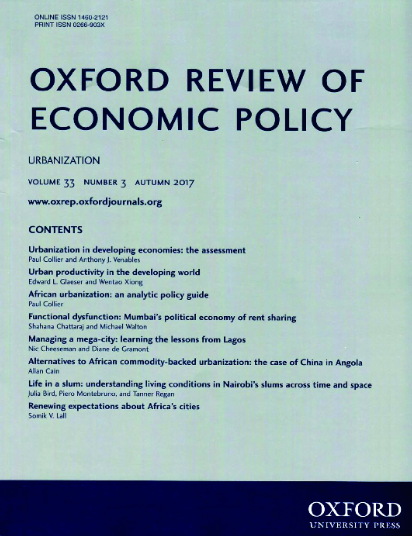The new world order and the Global South
IF 1.8
2区 经济学
Q2 ECONOMICS
引用次数: 0
Abstract
The shift of power away from the West is often seen as a key element of the crisis of liberal international order. The reluctance by most non-Western powers to side with the West vis-à-vis Russia’s invasion of Ukraine has contributed to the notion that the emerging order will be shaped by a contested system of spheres of influence, geopolitical tensions, and a much smaller common denominator vis-à-vis the normative elements of global order. Yet views across the Global South vis-à-vis the liberal order are far more nuanced, and pointing to non-Western powers as a culprit for the crisis of global order would be simplistic. Indeed, many countries in the Global South tend to be less opposed to the values themselves that undergird liberal order but question the Western-centric ways in which the rules and norms are applied and the in-built hierarchies and inequalities of liberal order. The main challenge of existing structures of global governance thus does not seem to be non-Western countries’ rejection of the underlying rules, but the question of whether today’s system is capable of functioning in a genuinely multipolar order, where power and privilege are less concentrated than in the past. The recent ‘geopoliticization’ of the global economy and the emerging ‘tech war’ suggest this process of adaptation will be enormously difficult. At the same time, while specific subgroups are explicitly opposed to a rules-based order, there are few signs that the Global South—a concept of little analytical usefulness beyond denoting the non-West—would be interested or capable of articulating a genuinely novel or alternative approach sufficiently attractive to garner broad support.世界新秩序与全球南部
权力从西方转移往往被视为自由国际秩序危机的关键因素。在俄罗斯入侵乌克兰问题上,大多数非西方大国不愿站在西方一边,这促使人们认为,新兴秩序将由有争议的势力范围体系、地缘政治紧张局势以及全球秩序规范要素中更小的共同标准所塑造。然而,全球南方国家对自由秩序的看法要细微得多,将非西方大国视为全球秩序危机的罪魁祸首未免过于简单化。事实上,全球南部的许多国家往往不太反对支撑自由秩序的价值观本身,而是质疑以西方为中心的规则和规范的应用方式,以及自由秩序中固有的等级制度和不平等。因此,现有全球治理结构面临的主要挑战似乎并不是非西方国家对基本规则的反对,而是当今的体系能否在一个真正的多极秩序中发挥作用的问题,在这种秩序中,权力和特权的集中程度不如过去。近期全球经济的 "地缘政治化 "和新出现的 "科技战争 "表明,这一适应过程将非常艰难。与此同时,虽然一些特定的小团体明确反对以规则为基础的秩序,但几乎没有迹象表明,全球南方--这个除了表示非西方国家之外几乎没有任何分析作用的概念--会有兴趣或有能力阐明一种真正新颖或替代性的方法,这种方法具有足够的吸引力以赢得广泛的支持。
本文章由计算机程序翻译,如有差异,请以英文原文为准。
求助全文
约1分钟内获得全文
求助全文
来源期刊

Oxford Review of Economic Policy
ECONOMICS-
CiteScore
12.50
自引率
1.50%
发文量
41
期刊介绍:
The Oxford Review of Economic Policy is a refereed journal which is published quarterly. Each issue concentrates on a current theme in economic policy, with a balance between macro- and microeconomics, and comprises an assessment and a number of articles. It gives a valuable appraisal of economic policies worldwide. While the analysis is challenging and at the forefront of current thinking, articles are presented in non-technical language to make them readily accessible to all readers. The Oxford Review is aimed at a wide audience including government, business and policy-makers, as well as academics and students. It is required reading for those who need to know where research is leading.
 求助内容:
求助内容: 应助结果提醒方式:
应助结果提醒方式:


